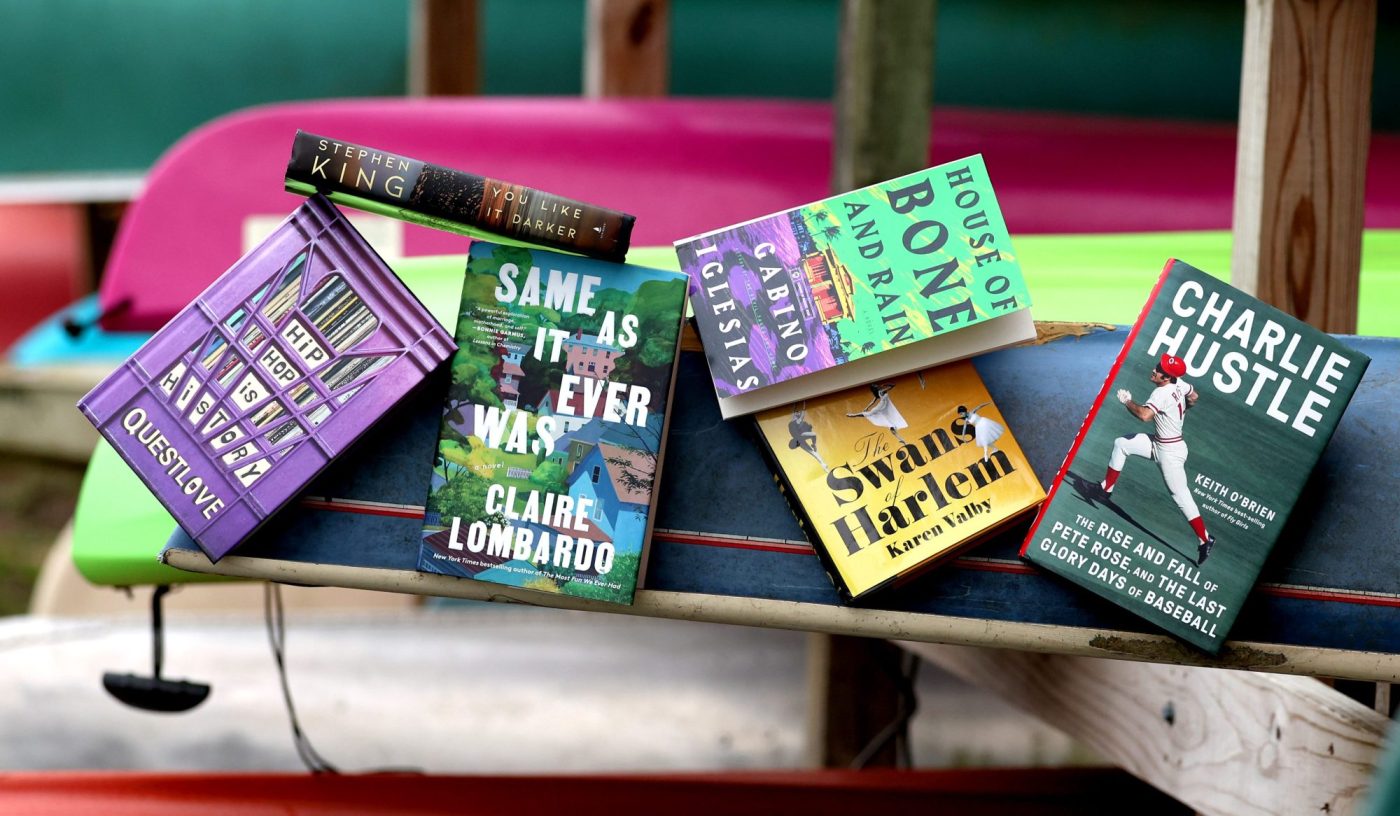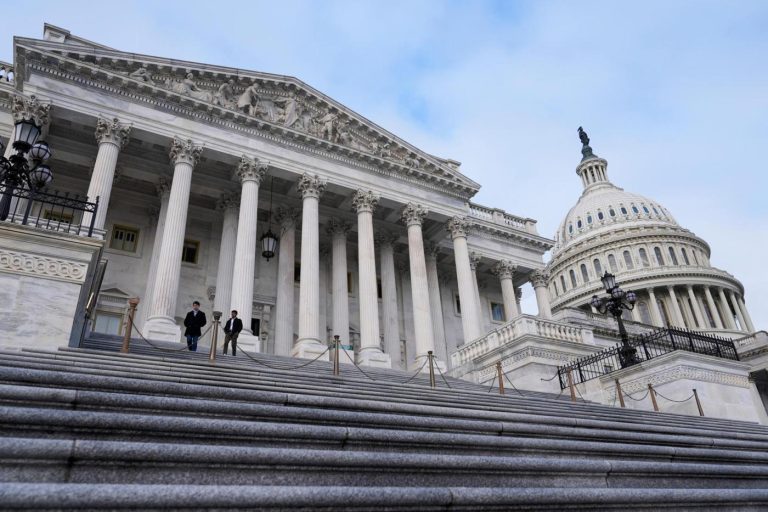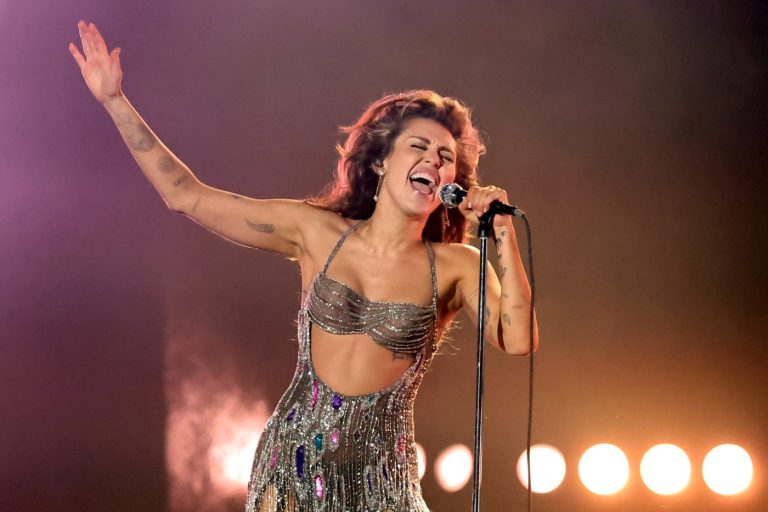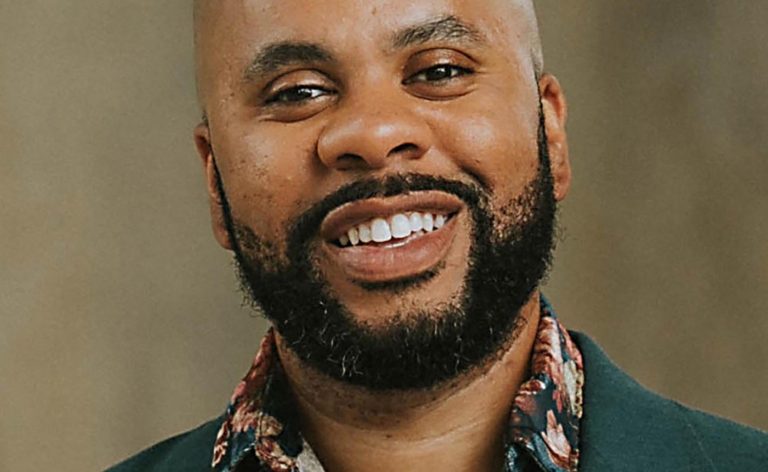One strategy for summer reading — and yes, there are strategies — is to begin a project.
Dabble in short punchy books, but devote the season to an epic. You get three months.
I read “The Lord of the Rings” this way, one installment a summer, for years. Now I’m picking through Robert Caro’s (still unfinished) Lyndon Johnson biography this way. Another strategy: Give yourself a quasi-degree in something very specific. Read the complete short stories of the late Alice Munro. The crime novels of Stephen King. Or underrated Penguin Classics: This summer offers a couple of fresh contenders — Harry Crews’ “The Knockout Artist” (about a boxer with a talent for knocking himself out), and “A Last Supper of Queer Apostles,” unclassifiable writing about being gay under a dictatorship, by Chilean legend Pedro Lemebel.
You’ll clip right along.
Same goes for an excellent new edition of a monster: The Folio Society’s wonderful “Jonathan Strange & Mr. Norrell,” Susanna Clarke’s contemporary classic about magicians in 19th century England. As a single adventure, it was an 800-plus page cinderblock in 2004. Folio divides all of that into a much brisker trilogy, as it should have been, ideal for devouring in adult-size chunks that you can pass along to a precocious child or spouse, while continuing yourself.
As for the rest of you who just want a new mystery or history for the backyard, this summer is overstocked, even more so than the coming fall season. Yes, I read all of these; now get started.
No-guilt beach reads: One of the great American mystery series continues with “Farewell, Amethystine,” Walter Mosley’s 16th novel about Los Angeles detective Easy Rawlins. This one finds him in 1970, tracking an ex-husband, navigating gender upheaval. “The Sicilian Inheritance,” by airport favorite Jo Piazza, nails a clever twist on a contemporary cliche: Newly single American woman moves to Italy, discovers herself. The twist — she’s pulled into ugly family business — plays like a Palermo breeze.
You got the top pulled down and radio on, baby: “Traveling: On the Path of Joni Mitchell” (June 11) is the best kind of summer bio. It’s too critical and wandering to read like hero worship. NPR’s Ann Powers, among the smartest of music critics, captures the restlessness of a Mitchell album, walking through her catalog with eyes and ears open for both unease and transcendence. “Hip-Hop is History” (June 11) nails a similar feeling: It’s less like a timeline than a long hang with the Roots’ Questlove, who digs through the classics, offering reminiscence and discernment.
Family time: ‘Tis the season for other people’s problems. “Same as It Ever Was” (June 18), by Oak Park native Claire Lombardo (“The Most Fun We Ever Had”), and “Long Island Compromise” (July 9) by Taffy Brodesser-Akner (“Fleishman Is in Trouble”), check a lot of boxes — relatable but never dull, reliably bonkers family, funny. But they’re also breezy satires of privilege without sacrificing gravitas. Lombardo hems with modesty to the way minor breaks in routine spiral into epic crisis. Brodesser-Akner, who twists her knife with more relish, begins with actual crisis (a mysterious kidnapping and release), then leaps to the surprising ways it stamps fear into each member of the wealthy family. For austerity: “This Strange Eventful History,” Claire Messud’s somewhat autobiographical saga about several generations of a French family, severed from each other during World War II, and the way time and distance become inevitable.
Tales of future past: “What the Wild Sea Can Be: The Future of the World’s Ocean” (July 16), by Helen Scales, a marine biologist who doesn’t write like one. Here is a clear-eyed survey of what ails ocean life, shaped by Scales’s own experience and a bracing look at what’s being done. For something completely different: “The Book of Elsewhere” (July 23) is not quite science fiction, or fantasy, but as hard to pin down as you might expect a book authored by British surrealist China Miéville and Keanu Reeves. It’s also fun, a novel-length continuation of Reeves’s hot comic book, “BRZRKR,” a kind of Conan the Barbarian tale with black helicopters.
“Nat Turner, Black Prophet: A Visionary History” by Anthony E. Kaye and Gregory P. Downs, “The Work of Art” by Adam Moss, “Circle of Hope” by Eliza Griswold, photographed in Barrington. (Stacey Wescott/Chicago Tribune)
Rebel yells: “Nat Turner, Black Prophet: A Visionary History” (Aug. 13) begins with what you (might) know: In 1831, an enslaved preacher named Nat Turner led an uprising that was inevitably quashed, yet promised more to come. The late historian Anthony E. Kaye, with Gregory P. Downs, retells this in a fascinating new way, centering Turner’s conviction that he was a vessel of God. “Night Flyer: Harriet Tubman and the Faith Dreams of a Free People” (June 18), by National Book Award-winner Tiya Miles, takes a similar approach to a more familiar American hero: It focuses on Tubman as a spiritual leader and self-taught ecologist. It’s the lyrical biography we’ll need before Tubman — already more myth than person — begins gracing the $20 bill, starting in 2030.
Cruel summer: Personally, it’s not summer unless I stretch out with a new Stephen King, and if that sounds familiar: “You Like It Darker,” his latest collection of stories, is among his smartest, yet tipping toward crime tales and the slightly paranormal. The centerpiece, “Danny Coughlin’s Bad Dream,” is a stealth, 140-page mystery novel tucked beside a “Cujo” postscript and the gorgeous “Answer Man,” a late-career classic. For best results: Follow with Harlan Ellison’s “Greatest Hits,” a new compilation of vintage tales that shaped sci-fi and horror, inspiring King and Neil Gaiman (who writes the forward). Sentient AI, dystopias, alien copulation, evil twins …
Two absorbing sports books that aren’t actually about sports: Joseph O’Neill’s “Godwin” — like his celebrated 2008 novel “Netherland” — defies quick description. It reads like a fable, opening with the corporate chill of a Pittsburgh office then travels to suburbs of London and soccer fields of Africa. It follows the story of a soccer agent who talks his estranged brother into finding a soccer phenom. “Charlie Hustle: The Rise and Fall of Pete Rose, and the Last Glory Days of Baseball,” by former Chicago journalist Keith O’Brien, would make a nice double-header: It’s not biography but taxonomy, a pungent epic about hubris and, in the figure of the disgraced Cincinnati Red, moral vacancy.
Summer book recommendations include “Night Flyer” by Tiya Miles, “Hip-Hop is History” by Questlove, “Charlie Hustle” by Keith O’Brien, “You Like It Darker” by Stephen King, “Same as it Ever Was” by Claire Lombardo and “A Last Supper of Queer Apostles” by Pedro Lemebel. Photographed at South Boulevard Beach on June 3, 2024, in Evanston. (Stacey Wescott/Chicago Tribune)
It’s not the heat; it’s the brimstone: “Craft: Stories I Wrote for the Devil” (June 18), by Chicago-based Ananda Lima has an eye-catching premise — you’re reading a collection of stories by the author following a one-night stand with Satan — so clever, it’s a relief to report that’s merely the hook for a substantive first book of major confidence, and belly laughs. Speak of the devil: Randall Sullivan’s “The Devil’s Best Trick: How the Face of Evil Disappeared” and Ed Simon’s “Devil’s Contract: The History of the Faustian Bargain” (July 9) are ideal histories for the warmest weeks, cultural spelunkings into our centuries-old need to portray unencumbered immorality, from Nathaniel Hawthorne to the ‘80s Satanic Panic.
One lit life: “Norman Maclean: A Life of Letters and Rivers” is part author bio, part literary memoir, told by Rebecca McCarthy, a former student of Maclean who kept a lifelong friendship with the Hyde Park legend, a beloved professor at University of Chicago who — famously, very late in life — wrote “A River Runs Through It.”
Just a dream and the wind to carry me: It’s hard to relay how exhilarating, and unsettling, being a speck on the ocean is, with no other specks in sight, horizon to horizon. “Sailing Alone: A Surprising History of Isolation and Survival at Sea,” by maritime historian Richard J. King, gathers dizzying case studies of what drives people to do this, improvising steering systems for sleeping, talking to dolphins out of lonliness. Consider the complicated hero at the heart of Hampton Sides’ excellent best-seller, “The Wide Wide Sea: Imperial Ambition, First Contact and the Fateful Final Voyage of Captain James Cook.” Cook represented the best of global exploration. Until he represented the worst. As forward-thinking as he was with native cultures, he died on a beach in Hawaii, stoned by its people. Sides’s compulsively readable 16th-century history is about the gulf between decency and a boss’s orders.
“The Age of Grievance” by Frank Bruni, “Fire Exit” by Morgan Talty, “Footnotes from the Most Fascinating Museums” by Bob Eckstein, “Horror Movie” by Paul Tremblay and “Parade” by Rachel Cusk, photographed in Barrington. (Stacey Wescott/Chicago Tribune)
Summer ennui: If you have read Rachel Cusk — and if you haven’t, there’s your summer reading list — you’re safe to assume her latest novel about creative life, “Parade” (June 18), starts with a darkly funny come-on (an artist paints a portrait of his wife, makes it ugly and it sells), only to end up very far afield. “Fire Exit,” the lacerating debut novel by Morgan Talty, whose story set “Night of the Living Rez” was a 2022 critical smash, delves again into the families in a Native American community, for a tale of a man haunted by descendants present and just out of reach. Speaking of haunting: “We Burn Daylight” (July 30), by the underrated novelist Bret Anthony Johnston (“Remember Me Like This”) delivers another thriller less visceral than traumatic: The story of a cult in Waco, Texas, about to be taken by law enforcement, and the drama that unfolds inside and out. (Any similarities to Branch Davidians are purely intentional.)
Rethinking summer programming: “Something authentic, buried beneath something fake.” That’s how New Yorker TV writer Emily Nussbaum perfectly explains the allure of both “The Bachelor” and “Candid Camera” in “Cue the Sun! The Invention of Reality TV” (June 25). She works magic, walking on that wavering line between fandom and disgust but never scolding. “The Future Was Now: Madmen, Mavericks, and the Epic Sci-Fi Summer of 1982” (July 30), by “Caddyshack” historian Chris Nashawaty, begins with the maxim “Film critics get it wrong all the time,” then proves it. This is Gen-X catnip, a backstage rewind through a momentous movie summer that delivered us “Blade Runner,” “The Thing,” “E.T.,” “The Road Warrior” and far more.
Summertime sadness: “Challenger: A True Story of Heroism and Disaster on the Edge of Space,” by Adam Higginbotham — whose remarkable “Midnight in Chernobyl” established him as the go-to narrator of tragedies — reads like a backward mystery, starting with the Space Shuttle explosion in 1986, then unwinding through institutional arrogance and the queasy assumption of “acceptable risk” that dooms even the best intentions. Eliza Griswold’s equally immersive “Circle of Hope: A Reckoning with Love, Power and Justice in an American Church” (Aug. 6) documents the conflicts and frayed idealism that pulled a Philadelphia church apart over 30 years, but Griswold — whose “Amity and Prosperity” won the nonfiction Pulitzer in 2019 — grounds much of the story in old-fashioned fly-on-the-wall reporting, tagging along until she’s invisible.
“The Knockout Artist” by Harry Crews, “Farewell, Amethystine” by Walter Mosley and “Sailing Alone” by Richard J. King. (Stacey Wescott/Chicago Tribune)
Summer Art Fare: At some point this summer, you may duck into the cool marble halls of a museum. “Footnotes from the Most Fascinating Museums,” by New Yorker cartoonist Bob Eckstein, is a lovely wish list of American options, dreamily illustrated, full of histories of the classics (the Art Institute of Chicago), but also battleship museums, Kentucky’s Noah’s Ark, the Rothko Chapel in Texas … “The Work of Art: How Something Comes From Nothing,” by former New York magazine editor Adam Moss, should get you through the rest of summer. Here is a brick of insight into that creative purgatory called the process, featuring notebook scribbles, sketches and chats with Sofia Coppola, Gay Talese, Suzan-Lori Parks and many more artists in far-flung fields. “Dinosaurs at the Dinner Party” (Aug. 6) could be an engrossing anecdote from those books, the story of why history museums are now occupied by creatures none of us have seen. It follows the accidental discoveries that led to piecing together the first dinosaur skeletons, and what that meant for naturalists and clergy alike.
Election-year reading that isn’t a chore: What ails us, Frank Bruni writes in “The Age of Grievance,” isn’t grievance — this is a nation, of course, founded on the stuff. But rather, “a manner of individualism often indistinguishable from narcissism,” fostering “a violent rupture of our national psyche.” It’s an illuminating rant about humility, and one that echoes throughout “The Playbook: A Story of Theater, Democracy and the Making of a Culture War,” by James Shapiro. Here, the history is the birth and death of the New Deal’s Federal Theatre Project, and the question of whether a country so fractious can sustain a national theater. Each chapter, often centered on loathsome political hearings, is part rousing, part enraging.
Dipping into the deep end: One of the year’s best books is “I Just Keep Talking: A Life in Essays” by Nell Irvin Painter, a digressive, accessible summer course on visual aesthetics (Black Power art), Southern history, Black figures both well-known (Sojourner Truth) and obscure (Alma Thomas), but primarily, the art of writing a pointed essay. “The Art of Dying: Writings 2019-2022” collects the final 46 stories by late New Yorker critic Peter Schjeldahl, from his 2019 essay about learning he had advanced lung cancer to his final piece on German photographer Wolfgang Tillmans. It’s another art course in a book (with a bonus introduction by Schjeldahl pal Steve Martin). For a decidedly more fun essay: “Any Person Is the Only Self” (June 11), by Elisa Gabbert, which collects her thoughts on Sylvia Plath, Motley Crue, “Point Break,” Proust …
“Rebel Girl” by Kathleen Hanna and “The Wide Wide Sea: Imperial Ambition, First Contact and the the Fateful Final Voyage of Captain James Cook” by Hampton Sides. (Stacey Wescott/Chicago Tribune)
I know what you read this summer: Gabino Iglesias, whose “The Devil Takes You Home” was one of the best books of 2022, summons similar darkness for “House of Bone and Rain” (Aug. 6), returning the author to his native Puerto Rico for more gangs, bad weather and traditions that slowly draw in creepy crawlies. Iglesias is where Paul Tremblay (“Cabin at the End of the World”) was a few years ago. “Horror Movie” (June 11), Tremblay’s latest, is a new jewel, the story of a cursed film, alternating between the screenplay and “the unreality of the entertainment ecosystem” that worships it. (Read before the inevitable horror movie of “Horror Movie.”)
Summer sleepers: “The Swans of Harlem” tells a vibrant, lovingly researched group biography of the 152nd Street Black Ballet Legacy Council, the five Black ballerinas who, at the peak of the civil rights movement, brought new urgency to a segregated art form. “When Women Ran Fifth Avenue” is another unheralded history, a fascinating excavation of the midcentury women — including two Chicagoans, Dorothy Shaver and Geraldine Stutz — whose designs and ideas reinvented American department stores and consumer fashion. In each of these books, a set of women is assembling a world they want. Bringing that history into today: In “Rebel Girl: My Life as a Feminist Punk,” Kathleen Hanna of Le Tigre and Bikini Kil writes about the grassroots Riot Grrrl movement and her fidelity to a low-fi, DIY independent music scene with bluntness, stumbling through the ‘90s, loaded with exclusionary politics and hope.
cborrelli@chicagotribune.com












